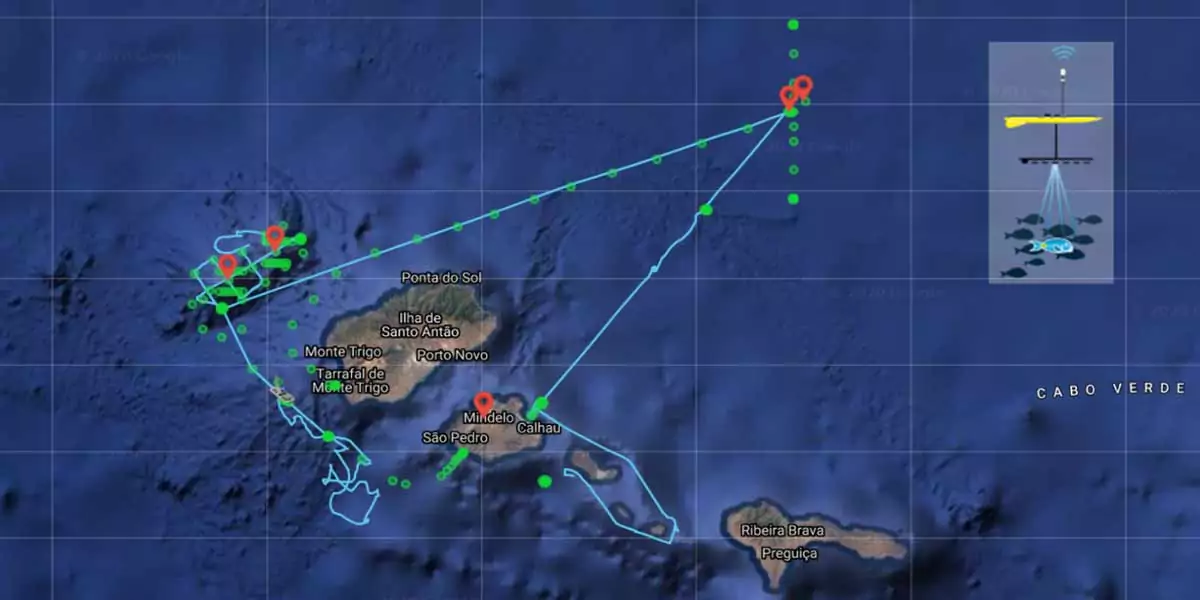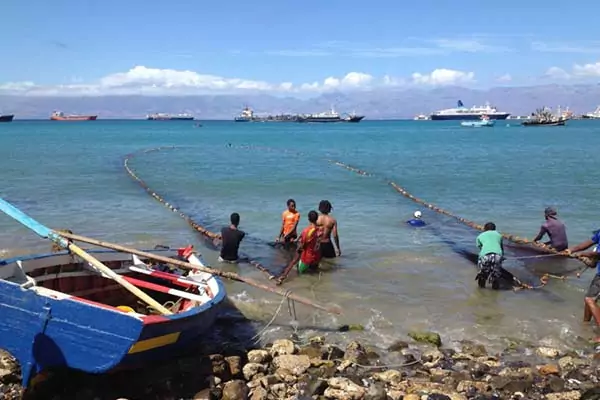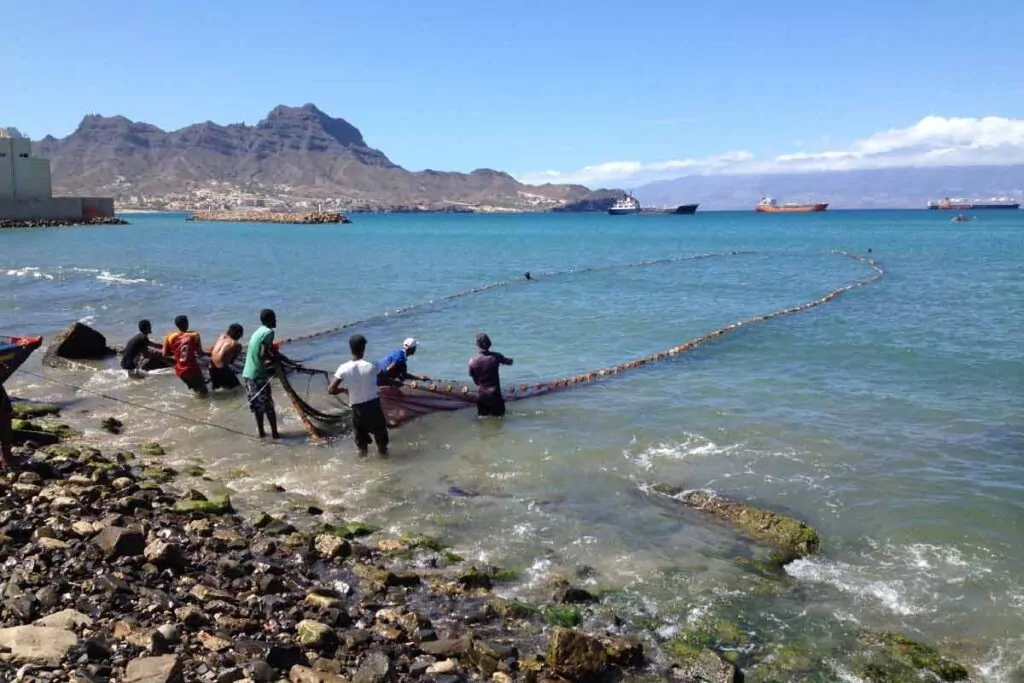The Coastal Ecosystem Monitoring in Cabo Verde (CEM_CV) project was introduced on December 15 as part of a series featuring each of the 12 MeerWissen projects to provide insights into project activities, share lessons learned and discuss possible synergies.
The project aims to develop standards for a coastal monitoring program in a region where no systematic ecosystem observations exist so far in order to improve local knowledge about the marine coastal environment and the biodiversity around Cabo Verde, supporting evidence-based decision-making processes. At a time when global ocean changes are accelerating, the project aims to establish a baseline from which to assess potential impacts of global changes on the local ecosystem. This knowledge could also provide extremely valuable for further scientific analyses, such as of socio-economic consequences.
On November 20, the survey design kick-off workshop was held, an important milestone to move into the next phase of field studies and community observations. This research project combines the use of state-of-the-art observation technologies with transdisciplinary research aspects that will involve local communities, such as mapping fisheries through a self-reporting system via cell phones, and finally training local investigators to ensure continuous learning and long-term sustainability.
Designing reasearch for sustainability requires to intentionally and creatively explore and implement radical changes in social as well as environmental arenas. While the German Geomar Research Institute has a long-standing collaboration with Cabo Verde, participation with a project in MeerWissen initiative seems to have triggered transformative change, as the application of co-creation principles and tools has facilitated knowledge mobilization among various stakeholder groups, including local communities, local authorities, as well as the academic researchers from both continents. Representatives of local authorities have been involved from the beginning, which enhanced ownership and science-policy uptake and could make the project a blueprint for the region.
The experiences and contributions of the various partners appear to have improved the study design, for example through more informed and effective decisions about prioritizing parameters for ecosystem monitoring. To listen to the presentation and discussion on these topics in more detail, watch the recording of the webinar in this article.
The main researchers involved in the project are:
- Dr. Björn Fiedler (GEOMAR/OSCM)
- Dr. Jörn O. Schmidt (Kiel Marine Science)
- Dr. Heino O. Fock and Dr. Uwe Krumme (Thunen-Institute of Baltic Sea Fisheries)
- Dr. Corrine Almeida (University of Cabo Verde)
- Vito Ramos (National Institute for Fisheries Development)



